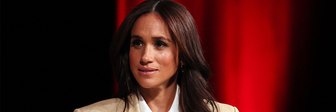It is a risky and foolhardy thing to call the result of an election before the voters have even cast their ballots. It could well be that in the election for the new leader of the Labour Party, Diane Abbott, Ed Balls or Andy Burnham will surprise us all. But the polls have consistently suggested that the real battle is between the two Miliband brothers, David and Ed. Voting is about to begin and the struggle between the two of them has started to become more intense.
Up to now the campaign has hardly set the world on fire. This was probably inevitable. In the first place the eyes of the political world have been focussed almost exclusively on the new government, on the novelty of coalition and on the energy it seemed to be applying to almost all areas of policy.
But the lack of interest in Labour’s competition has been due too to the sheer length of the campaign. An election that involves fifty six hustings meetings is bound to end up with candidates speaking simply by rote, each of them no doubt capable of reciting the others’ lines word perfect. There has been the problem for them too of finding ways to distinguish themselves from each other. All were involved in thirteen years of Labour government, some of them close to the very centre of power throughout. Only Diane Abbott, always a left-wing critic of her government, has enjoyed real independence of position.
In the public’s eyes there has been the additional problem that (at least in the case of the male candidates) they all seemed cut out of the same cloth: bright Oxbridge graduates who had gone straight into Labour politics as researchers, become special advisers, then MPs and finally ministers. What was there to choose between them? For the Miliband brothers this problem has been exacerbated not only by their having the same name and looking like each other but also by the need to seem fraternal. Neither wanted the Cain and Abel comparison to be drawn.
But in fact there has always been a clear difference between the two of them. At its simplest this can be defined in terms of the division which has plagued New Labour almost since its inception, the conflict between Blair and Brown. David Miliband is the protégé of Tony Blair; Ed Miliband, the protégé of Gordon Brown. Now that division is at last becoming manifest in leadership election itself.
At one level this is illustrated by money. David Miliband has been under sniper attack from his rivals by virtue of his ability to raise far more campaign funds than any of them, including his brother. This money has been dubbed ‘New Labour establishment’ money, much of it deriving from wealthy individuals who helped bankroll New Labour under Tony Blair.
More traditionalist Labour supporters have always been suspicious of these donors and their money not least because they believed the money bought undue influence in the party which steered it away from its core supporters, their values and interests. They didn’t like it when leading New Labour figures said the party was relaxed about people becoming “filthy rich” even when those people were paying taxes and giving hefty donations to the party.
David Miliband has defended the levels of financial support he has been able to attract arguing that the party itself urgently needs to be able to raise money (its former deputy leader, John Prescott, said the other day it was virtually bankrupt) and that therefore having a leader who can tap people for funds is an advantage.
But the main division emerging between the two brothers is over the electoral strategy of the party and this division goes beyond the cleft within New Labour to the even more fundamental issue of what sort of party Labour should be.
Ed Miliband started up this argument earlier in the week when he said he wanted the Labour Party to reach out to disillusioned Liberal Democrat voters who, he said, had been “sold out and betrayed” by the party’s decision to go into coalition with the Conservatives. Some of his campaign staff are believed to have been behind the press rumours last weekend that several disgruntled LibDem MPs, including the former leader, Charles Kennedy, were contemplating jumping ship and joining Labour, a rumour Mr Kennedy was quick to deny in emphatic terms.
David Miliband responded to his brother’s attempt to make the Labour Party the exclusive home of the left and centre-left, embracing former LibDems, by interpreting it as a retreat into a “comfort zone” of leftist opposition that turned its back on the wider electorate. He wrote: “Simple opposition takes us back to our comfort zone as a party of protest, big in heart but essentially naïve.” In his view, Labour needed to appeal much more widely than merely to disenchanted LibDem voters. It needed to win back Tory voters too. This, after all, is what Tony Blair’s New Labour had successfully done.
Ed Miliband, however, this constituted a comfort zone strategy of its own. He wrote: “Remaining in the New Labour comfort zone would consign us to opposition.” His view is that Labour needs to focus much more on its core vote, especially on issues such as increasing inequality.
This week’s row over whether the coalition government’s Budget was progressive (as it claims) or regressive (as the Institute for Fiscal Studies contends) has brought this issue to the forefront of the Labour leadership campaign. While both the Milibands argue for greater equality, David admits that the Blair government “did not focus” on income inequalities.
Some in the party therefore see any new ‘New Labour’ strategy (as they interpret David Miliband’s to be) as likely to lead to a similar neglect of inequality because the pursuit of votes in the centre and centre-right makes that inevitable, they believe. Ed Miliband’s position looks to many to involve a distancing from New Labour almost to the point of seeming like Old Labour.
What is emerging, therefore, is a very clear difference of opinion about what direction the Labour Party should take. So, although the two brothers may seem very similar to the casual onlooker, the Labour Party’s future may be very different depending on which becomes its leader.
But we should not forget that one of the other three may surprise us still.
What’s your view? Are you interested in the Labour leadership election? Do you think it is a two-horse race between the brothers or do you think any of the other candidates has a case to become leader which ought still to be heard? Do you think it matters, either positively or negatively, that David Miliband has raised far more money for his campaign than any of the others, including donations from rich individuals who backed New Labour? Do you think Ed Miliband’s strategy of reaching out to disillusioned LibDem voters is the right one, or do you agree with his brother that Labour needs to cast its net more widely? What do you make of each of them accusing the other of occupying ‘comfort zones’? Do you want New Labour to be revitalised or do you think its time has come and gone? Who would like to become the new Labour leader? And who do you think will win?









